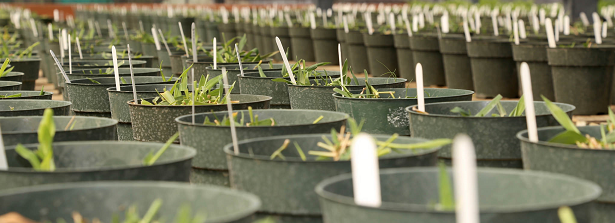The relevance of longer-term research

Longer-term research has as much, but complementary, relevance for the objective of food security as shorter-term research. The research funded through the Food & Business Global Challenges Programme (GCP) may last four to five years. This allows for methodologies that require time to lead to results, such as in-depth studies, iterative research approaches and more elaborate experiments. In addition, a longer duration provides opportunities for gaining trust and building relationships within and beyond the project, which is crucial in co-creation processes. Furthermore, the development of research capacities, particularly those that are needed within research aiming for impact, demands time to be invested. This is illustrated by two of the five GCP projects funded within the first call (GCP-1) in 2014, of which detailed information on the potential for impact is now available as they have recently passed their midterm stage.
Sustainable access to affordable, safe and nutritious food
One of the GCP-1 projects aims to contribute to long-term access to affordable, safe and nutritious food for vulnerable and resource-poor populations in developing countries (the GCP aim) by optimising traditional fermented foods in Zambia. To do so, the research consortium has characterised current variations in the production process among producers, micro-biological experiments that eventually led to identification of the nutritional value of the varieties. To achieve impact, local diets and consumer needs are identified via testing panels amongst the local population in collaboration with Heifer International, a local NGO that is a research partner and other stakeholders. Through the involvement of a private partner, the findings will become part of a business model that enhances the potential for impact. Collaboration with local cooperatives ensures ownership by local producers.
The longer-term duration of the projects allowed for those experiments as well as coupling with in-depth studies of local dietary needs and a business model, which would not have been possible in short-term research. As such the results may have profound impact on nutritional security.
Inclusive value chain collaboration
Another project, that focuses on inclusive value chain collaboration, started with exploring livelihoods and diversity among tree-crop farmers in Ghana and South Africa. This led up to learning platforms where the exploratory data were validated with the farmers, policymakers and practitioners. Evaluation of the first platform led to a focus on district level and a shift to the role of change makers for inclusion and peer to peer learning. Change agents and key actors in value chain collaborations (VCCs) closest and most important to farmers were identified, leading to the second learning platform “Brokering innovation – the role of change makers”. Through participatory processes with farmers the profiles of farmers turned out to be more varied than the profiles commonly applied in policy frames, and this more detailed differentiation will enable more targeted support.
The long-term participatory approach of the project leads to ownership of the results by the target group of the project – small scale farmers. By engaging them in the innovation process and the co-designing approaches, the potential for sustainability of the results is increased. Such processes take time, for building up trust and understanding, for tailoring the research to farmers needs and for organising the input and learning with farmers. It also enables a profound reflection on the process itself and its potential for others.
Longer-term capacity development
In all GCP projects local as well as Dutch PhD students are part of the research consortia, which leads to the crucial development of capacities for research that aims at impact. The longer-term duration allows for these capacities to be developed at PhD level, in order to sustain the type of research funded through NWO-WOTRO in the future and in LMICs. Furthermore, the involvement in longer-term research develops capacities and insights that are a prerequisite for conducting shorter term research and consultancies.





